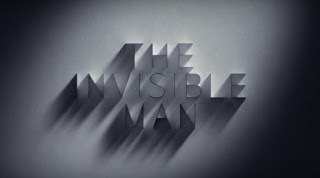The Invisible Man (Dir Leigh Whannell, 2h 5m)
Remember the Dark Universe, Universal's attempt to drop all of their classic horror characters, from Dracula to Frankenstein into a shared cinematic universe? Of course you don't, and despite two goes at booting it into life (the so-so but fun Dracula Untold and the impressively bad The Mummy, proving Tom Cruise's charisma is not enough to carry an entire franchise), it's been dead for at least two years, no further films are planned, and its projects dispersed to the ether from whence they came. But, like a great number of its mooted paranormal stars, it's been a hard set of creatures to kill. For you see, the Dark Universe itself may be dead, but it lingers on in the form of stand-alone movies, now produced for Universal by horror wunderkinds, Blumhouse.
Whannell's version of The Invisible Man, once starring Johnny Depp (the less said, the better), takes on a very different tack than it would ever had done under the Dark Universe banner, whilst having far more in common with the tone and the violence of the character than many adaptions have managed to do to date. Centering around Cecelia, (Elisabeth Moss), whose relationship with her controlling husband, Adrian, eventually causes her to flee their hi-tech house and take up refuge with her friend, James, and his daughter.
With Adrian supposedly dying in mysterious circumstances, supposedly freeing Cecelia from his coercive control, the film shows her slow recovery, only for Cecelia to be haunted by a mysterious invisible figure, in a series of tense and beautifully shot encounters, that little by little, ramp up the tension. What follows, in an excellently made thriller, is a film that perfectly captures the true horror of not only being trapped in an abusive relationship, but also the fear and control people feel even after they have escaped from their abusers, made terrifyingly real in the figure of its invisible villain.
It is this relationship, between abuser and victim that the film truly focuses on, in its pure economy of style. For great stretches of the film, it perfectly captures the troubled mental state of its heroine, and even in a career that covers a great number of excellent dramas, Moss has never been better; the fear and anger crossing her face genuine, the frustration and upset as she is increasingly labelled a crank and a fantasist, where Adrian's death is confirmed in an icy meeting with his brother, Tom, where the influence of her abuser lingers on after his assumed death. At points, the film cleverly plays with her point of view, and at point the camera lingers on empty space to nailbiting extent, almost asking if Cecelia's trauma has left her hallucinating, or whether the seemingly empty shot is not, in fact, empty, with a couple of shots in particular adding a subtle, but utterly terrifying detail, from a frying pan being turned back up, or whispy breath in the cold. The viewer, like Cecilia, cannot help themselves in being on tenterhooks, scanning every frame, even as the camera focuses on seemingly nothing, for some sign of the invisible man
It is in the titular villain, though, that the film shows its true cinematic chops, either shooting from Adrian's point of view, in sequences that are equal parts vouyeristic-one cannot help but be reminded of Peeping Tom (1960)'s point of view shots, or in shots that should contain its antagonist, that play with our knowledge of cinematic language, and only occasionally actually reveal him, only adding to the neurotic sense of this film-in short and simple sense, we are never entirely sure as an audience when Adrian's invisible form is actually there, or if Cecelia is confronting thin air, with the film playing perfectly with our expectations. Nowhere is this seen better than in the impressively taut kitchen scene, where for the first time, Whannell does more than hint at the figure of Adrian, in an impressive marriage of special effects, performance, and cinematography, where he finally makes himself known in a violent assault upon his former wife.
Where The Invisible Man is at its strongest in in its tapping into this fear of the abuser-early in the film, there's a scene where Cecelia, clearly still scared of the very concept of the reappearance of her husband, manages to venture outside, only to be scared back into the house by a passing jogger. It captures, perfectly, the fear of your abuser, the heightened awareness of your surroundings, the sense of being watched, or believing you are being watched. Moreover, it ramps up the tension, the escalation of its misanthropic masculine presence, in a series of violent actions that slowly begin to show the extent that Adrian will go to, including the most horrifying moment that comes without visual, audio or implied horror, but plays upon a decidedly female sense of horror as few films recently have managed to do.
If there is one flaw to The Invisible Man, it is in its slightly ponderous length-in places its two hour run time over a small number of perfectly chosen locations and characters, does make it feel somewhat stretched and at points, one does wonder if this film could have been shorter and even more effective with twenty minutes of fat trimmed off the bones, and more propulsive energy. Yet, if Blumhouse's stark modernisation of HG Wells' 1897 novel into a vengeful, misanthropic scientist stalking his abused wife, in a taut and impressively nightmarish picture, is anything to go by, the Universal monsters are alive and well to roam American cinema once more, in a film that's as relevant as it is a superbly told thriller.
Rating: Highly Recommended.


Comments
Post a Comment